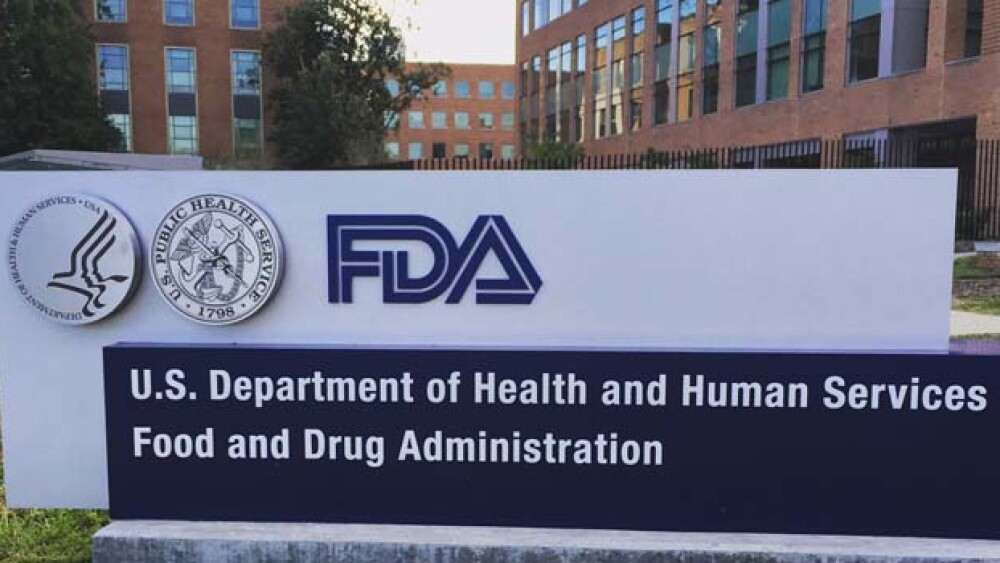Waylivra was rejected by the FDA last year but gained approval in Europe in May. The publication of final Phase III data in the New England Journal of Medicine could support a potential bid for regulatory approval in the U.S.
Boston-based Akcea Therapeutics and Ionis Pharmaceuticals are gearing up for another attempt at gaining regulatory approval for Waylivra, (volanesorsen), a treatment for patients with familial chylomicronemia syndrome (FCS).
One year ago, the U.S. Food and Drug Administration stunned the two companies when it rejected Waylivra, even after strong support from an advisory committee. There were some concerns over the drug’s safety profile, which may have been the reason for the FDA’s initial rejection. Now though, with final data from the Phase III APPROACH study published in the New England Journal of Medicine, Akcea and its parent company Ionis are ready to try again for approval in the U.S. Waylivra was approved for use in the European Union earlier this year. The study data published in the article “Volanesorsen and Triglyceride Levels in Familial Chylomicronemia Syndrome” showed that mean triglyceride levels decreased 77% in Waylivra-treated patients versus an 18% increase in patients in the placebo group. Waylivra is designed to reduce the production of apolipoprotein C-III (apoC-III), a protein produced in the liver that plays a cnentral role in the regulation of plasma triglycerides in FCS patients. In the Phase III study, the levels of apoC-III also decreased by an average of 84 percent from baseline at three months. The most common adverse events noted in the APPROACH trial were injection site reactions and platelet declines, Akcea said.
Brett P. Monia, chief operating officer of Ionis Pharmaceuticals, said the data published in the New England Journal of Medicine “clearly demonstrates Waylivra’s safety and efficacy profile for patients with FCS.” Although no timeline was provided, BioSpace was told that Akcea and Ionis are working to confirm a path forward for Waylivra in the U.S. and Canada.
“We are very pleased that The New England Journal of Medicine recognizes the significance of the APPROACH data and the potential of Waylivra to address an area of significant unmet need in the treatment of FCS,” Louis O’Dea, chief medical officer of Akcea Therapeutics said in a statement.
FCS is a rare disorder where patients have extremely high levels of triglycerides in their blood. That high level causes a range of symptoms including potentially fatal attacks of acute pancreatitis. With limited LPL function, people with FCS cannot breakdown chylomicrons, lipoprotein particles that are 90 percent triglycerides. FCS patients are at risk of chronic complications due to permanent organ damage. They can experience daily symptoms including abdominal pain, generalized fatigue and impaired cognition that affect their ability to work. It is estimated that there are 3,000 to 5,000 people living with FCS worldwide, Akcea noted.
Marcello Arca, head of the Lipid and Atherosclerosis Unit of the University Hospital Policlinico Umberto I and a lead investigator, said the APPROACH study results show that Waylivra lowers triglyceride levels below the threshold for risk of triglyceride-induced acute pancreatitis in the majority of patients. Arca called Waylivra a promising treatment that can “significantly reduce the burden of FCS for patients and their families.”
O’Dea noted that with the approval of Waylivra in Europe, the therapy is the only approved FCS treatment. The company plans to launch the drug in Germany, then expand across the European Union.
Earlier this month, Akcea and Ionis announced positive top-line results for the BROADEN study of Waylivra for the treatment of patients with familial partial lipodystrophy, or FPL. The study met its primary endpoint that showed a statistically significant reduction in triglyceride levels in patients with FPL who were treated with Waylivra compared to placebo. In addition to achieving the primary endpoint, the study achieved a key secondary endpoint of a statistically significant reduction in liver fat, Akcea said.





